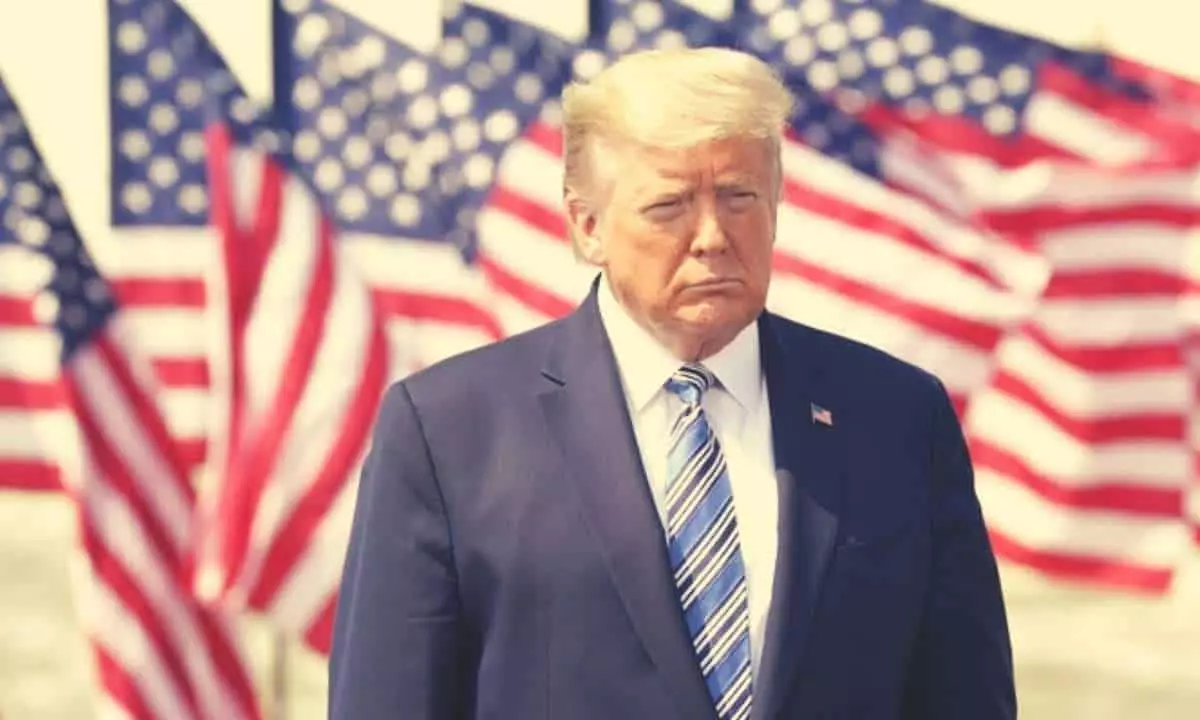The recent repeal of the IRS’s “DeFi Broker Rule” by President Donald Trump stands as a significant milestone that may redefine the cryptocurrency landscape in the United States. Signed into law on April 10, this legislative shift not only prevents the implementation of burdensome tax reporting requirements on decentralized finance (DeFi) platforms but also ensures the continued growth of innovation in this burgeoning sector. The wide-ranging implications of this decision capture the attention of those concerned with both economic progress and personal privacy.
The DeFi Broker Rule: A Misguided Approach
Originally arising from the 2021 Infrastructure Investment and Jobs Act, the DeFi Broker Rule attempted to narrow the definition of a “broker” to include developers of self-custodial wallets and DeFi applications. This catch-all approach was perceived as a heavy-handed method of closing tax loopholes perceived by critics within the blockchain community. However, the fundamental incompatibility of this rule with how decentralized platforms function ought to raise eyebrows. Unlike centralized brokerages, DeFi platforms are built on the foundation of user autonomy and privacy, meaning these entities neither collect nor store the personal data necessary for compliance with stringent IRS reporting requirements. Such inefficiency could overwhelm the IRS, ultimately harming both the agency and the taxpayer.
A Bipartisan Rejection of Overregulation
Support for the repeal came from both sides of the aisle, showcasing a rare moment of unity around the need to foster innovation rather than stifle it through overregulation. Representative Mike Carey (R-Ohio) and Senator Ted Cruz (R-Texas) led the charge, emphasizing the pressing need to protect U.S. innovators from foreign competition that has less stringent oversight. Critics of the original rule—often aligned with advocacy for civil liberties—argued it could push innovation and talent out of American jurisdiction. For many, the identity of America as a global leader in tech and finance is predicated on the encouragement of innovation, not the bogging down of creativity through unnecessary bureaucracy.
The Privacy Concerns Ignored
Privacy has emerged as an increasingly vital issue for everyday Americans participating in the crypto market. Many advocates for the repeal cited how the IRC rule would infringe upon personal privacy. Once again, it’s essential to recognize that collecting vast amounts of transaction data on individuals is not simply an administrative headache for the IRS; it represents a significant chilling effect on user engagement in crypto. The cancellation of this rule signals that privacy is not merely a luxury for wealthy crypto investors but a fundamental right that should be preserved for all.
Economic Prosperity through Innovation
The implications of this repeal go beyond individual privacy rights; they relate directly to the American economy and its future. The more progressive stance taken by the Trump administration reflects an understanding that an adaptive regulatory environment can unleash the economic power of technological innovation. Support for crypto could yield significant advancements in finance, logistics, and digital security, reinforcing the U.S. position in these high-stakes areas of development.
A Positive Shift in Regulatory Posture
The broad support for the repeal indicates a monumental shift away from the unnecessarily aggressive tactics seen during the Biden administration’s SEC approach, led by former Chair Gary Gensler. A more collaborative attitude from regulators, coupled with the establishment of the federal crypto task force under Trump, suggests a future where regulatory bodies may work alongside innovators rather than stifle them. This approach fosters an environment of trust and dialogue between government and industry—two previously at odds entities.
The Road Ahead: Promise and Challenges
Despite these steps toward regulatory relief, challenges remain. While this repeal undoubtedly represents a significant leap for proponents of deregulation, the path is fraught with potential backlash from those who favor more stringent oversight of cryptocurrencies. The complexity of digital currencies will require nuance in developing regulations that safeguard investors without quenching the entrepreneurial spirit inherent to crypto.
In this evolving landscape, public sentiment and legislative action must remain flexible to balance innovation with accountability. In doing so, both consumer protection and the dynamic capabilities of decentralized finance can coexist, charting a promising trajectory for the American economy.


Leave a Reply